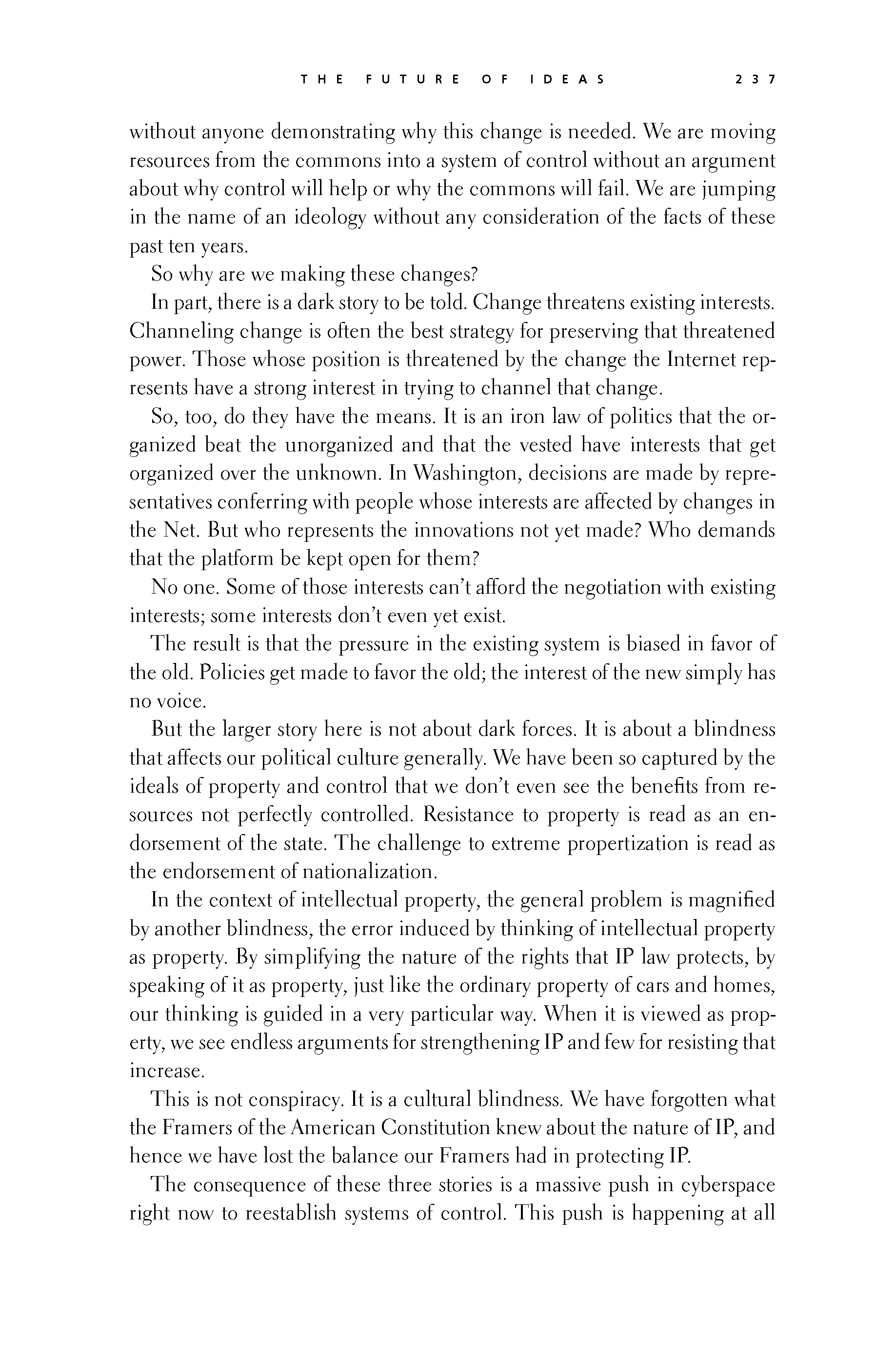 p236 _
-chap- _
toc-1 _
p237w _
toc-2 _
+chap+ _
p238
p236 _
-chap- _
toc-1 _
p237w _
toc-2 _
+chap+ _
p238
without anyone demonstrating why this change is needed. We are moving
resources from the commons into a system of control without an argument
about why control will help or why the commons will fail. We are jumping
in the name of an ideology without any consideration of the facts of these
past ten years.
So why are we making these changes?
In part, there is a dark story to be told. Change threatens existing interests.
Channeling change is often the best strategy for preserving that threatened
power. Those whose position is threatened by the change the Internet rep-
resents have a strong interest in trying to channel that change.
So, too, do they have the means. It is an iron law of politics that the or-
ganized beat the unorganized and that the vested have interests that get
organized over the unknown. In Washington, decisions are made by repre-
sentatives conferring with people whose interests are affected by changes in
the Net. But who represents the innovations not yet made? Who demands
that the platform be kept open for them?
No one. Some of those interests can't afford the negotiation with existing
interests; some interests don't even yet exist.
The result is that the pressure in the existing system is biased in favor of
the old. Policies get made to favor the old; the interest of the new simply has
no voice.
But the larger story here is not about dark forces. It is about a blindness
that affects our political culture generally. We have been so captured by the
ideals of property and control that we don't even see the benefits from re-
sources not perfectly controlled. Resistance to property is read as an en-
dorsement of the state. The challenge to extreme propertization is read as
the endorsement of nationalization.
In the context of intellectual property, the general problem is magnified
by another blindness, the error induced by thinking of intellectual property
as property. By simplifying the nature of the rights that IP law protects, by
speaking of it as property, just like the ordinary property of cars and homes,
our thinking is guided in a very particular way. When it is viewed as prop-
erty, we see endless arguments for strengthening IP and few for resisting that
increase.
This is not conspiracy. It is a cultural blindness. We have forgotten what
the Framers of the American Constitution knew about the nature of IP, and
hence we have lost the balance our Framers had in protecting IP.
The consequence of these three stories is a massive push in cyberspace
right now to reestablish systems of control. This push is happening at all
[[237]]
p236 _
-chap- _
toc-1 _
p237w _
toc-2 _
+chap+ _
p238